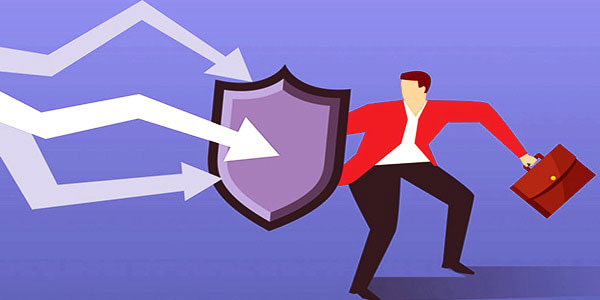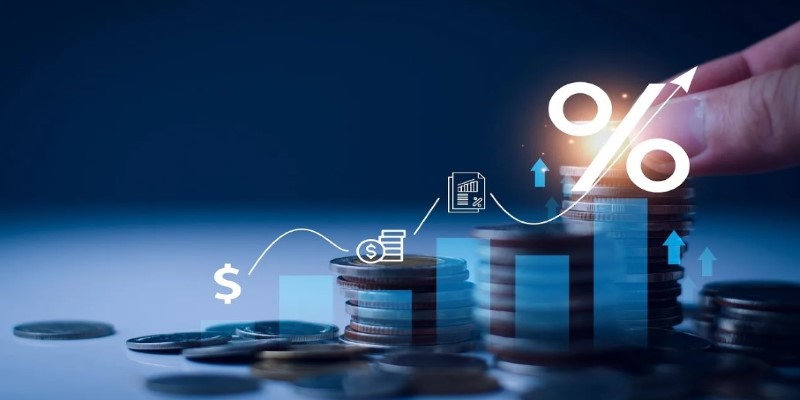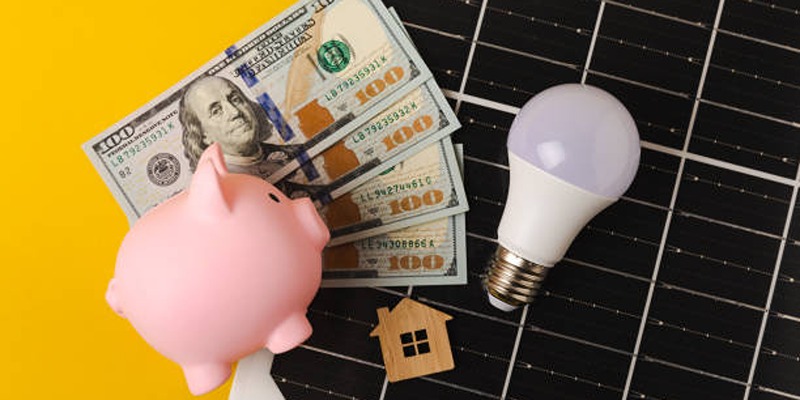Personal Loan Payments Impact: How Extra Payments Matter
May 07, 2024 By Triston Martin
Making extra payments on a personal loan can significantly impact the total interest paid and the time it takes to pay off the loan. This strategy not only reduces the loan balance faster but also decreases the amount of interest accrued over the life of the loan, potentially saving borrowers a substantial amount of money. This guide aims to explore the benefits of making extra payments towards personal loans, illustrating how early repayment strategies can lead to financial freedom sooner than anticipated. By understanding the effects of additional payments, borrowers can make informed decisions that align with their financial goals.
What are Personal Loans?
Before delving into the impact of extra payments, it's essential to grasp the fundamentals of personal loans. Unlike mortgages or auto loans, personal loans typically come with fixed interest rates and fixed monthly payments. Borrowers receive a lump sum upfront, which they repay over a predetermined period, often ranging from one to five years.
Impact of Extra Payments on Future Personal Loan Payments

Here is a more comprehensive explanation, offering detailed insights into each point discussed:
1. Accelerated loan payoff:
Paying more than the minimum on your personal loan can greatly accelerate your journey to being debt-free. By making extra payments, you directly lower the principal amount of the loan. This action causes the remaining balance to shrink more quickly, leading to earlier full repayment compared to adhering solely to the standard monthly payments.
2. Reduction in total interest paid:
Making additional payments on your personal loan offers a significant advantage: it reduces the total interest you pay throughout the loans duration. Extra payments lower the principal balance, consequently reducing the interest that accumulates over time. This strategy can result in considerable savings, potentially amounting to hundreds or even thousands of dollars, depending on your loans size and term.
3. Decrease in future monthly payments:
Paying extra towards your personal loan can hasten its repayment and potentially lower your future monthly installments. By reducing the principal balance with each supplementary payment, the interest on the remaining amount lessens. This reduction in interest can lead to decreased future monthly payments, thereby facilitating better financial management over time.
4. Greater financial flexibility and control:
Extra payments on your personal loan provide you with greater financial flexibility and control over your debt repayment journey. You have the option to make additional payments whenever you have extra funds available, whether it's from a bonus, tax refund, or savings. This flexibility allows you to tailor your repayment strategy to fit your financial situation and goals.
5. Shortened loan term:
As you consistently make extra payments towards your personal loan, you effectively shorten the term of the loan. By reducing the principal balance faster than scheduled, you're able to pay off the loan in a shorter amount of time than originally planned. This can give you a sense of accomplishment and motivate you to stay on track with your repayment goals.
6. Opportunity to become debt-free sooner:
Making extra payments on your personal loan presents an opportunity to become debt-free sooner than anticipated. By committing to a consistent repayment strategy that includes extra payments, you can expedite the process of paying off your loan and free yourself from the burden of debt. This can provide a sense of financial freedom and peace of mind.
Tips to Help You Pay Off Personal Loans Early
 Paying off personal loans early is a financially savvy goal that requires discipline, planning, and the right strategies. Here are some tips to help you achieve this objective:
Paying off personal loans early is a financially savvy goal that requires discipline, planning, and the right strategies. Here are some tips to help you achieve this objective:
1. Make Biweekly Payments:
Rather than adhering to the conventional monthly payment schedule, think about opting for bi-weekly half-payments. This approach culminates in 26 half-payments throughout the year, equating to 13 full payments, thereby effectively adding an extra payment annually. This strategy can significantly shorten your loan term and result in considerable savings on interest.
2. Round Up Your Payments:
By rounding your loan payments up to the nearest $50 or $100, you can greatly speed up the reduction of your loan balance and reduce the amount of interest paid over the loan's life. This strategy is both straightforward and can be seamlessly incorporated into your budget, offering a painless method to save money and pay off debt faster.
3. Utilize Windfalls Wisely:
Directing unexpected income, like tax refunds, bonuses, or gifts, towards loan repayment can significantly reduce your balance and accelerate the payoff process. Utilizing windfalls in this manner efficiently chips away at your debt, hastening its resolution.
4. Cut Expenses and Allocate Savings to Your Loan:
Examine your monthly expenditures carefully to pinpoint opportunities for cost reduction. Allocate the funds you save directly to repaying your loan. Minor modifications in your spending behavior can liberate extra cash for loan payments, enhancing your financial health.
5. Refinance Your Loan:
Should your credit score see an improvement since obtaining your loan, or if market rates have experienced a decline, it's wise to contemplate refinancing. Securing a lower interest rate can diminish your monthly payments and minimize the total interest paid, thereby facilitating an earlier payoff of your loan.
6. Set Up Automatic Payments for Extra Amounts:
Setting up automated loan payments, with added contributions towards the principal, guarantees consistent payments and eliminates the temptation to miss making extra payments. The majority of lenders offer flexible options for automating payments.
How Does Making Extra Payments Affect a Loan?
Making extra payments on a loan significantly impacts the loan's dynamics, primarily by reducing the principal balance sooner than the scheduled term. This action has a dual effect; it lowers the amount of interest that accrues over the life of the loan because interest is calculated on the remaining principal balance, which is now smaller. Secondly, it shortens the loan term because the loan reaches its payoff point earlier than it would under the original payment schedule. Consequently, borrowers can not only save money on interest payments but also gain financial freedom from their debt much sooner. This proactive approach to loan repayment enhances financial wellbeing by decreasing the overall burden of debt.
Conclusion
Making extra payments on your personal loan offers numerous benefits, such as reduced total interest paid, shortened loan term, and increased financial flexibility. With the right strategies and commitment, paying off your loan early is a realistic goal that can lead to significant savings and financial freedom. As you embark on your debt repayment journey, remember to stay disciplined and utilize the tips outlined in this article to help you achieve your goal. Don't be afraid to seek guidance from financial professionals if needed, and always keep your long-term financial goals in mind. With determination and a solid plan, you can successfully pay off your personal loan ahead of schedule.
-
 Investment Jan 17, 2024
Investment Jan 17, 2024Premium vs Discount Bonds: Which Should You Buy?
When a bond first gets issued, it's an ordinary bond, never an investment bond or discount bond. That is, the cost that you are charged for the brand new bond (its initial price) remains fixed and is referred to as "the par value. A bond is deemed "premium" or "discount" when it is traded in the marketplace. New bonds are offered through "the "primary market" and existing bonds are offered through "the "secondary market."
-
 Investment Dec 04, 2023
Investment Dec 04, 2023Features of Defensive Stock
A stock is considered defensive if it can continue to pay dividends and maintain steady profits regardless of the situation of the general stock market.
-
 Savings Sep 16, 2024
Savings Sep 16, 2024Secure the Best Savings Rates: 5 Tips to Earn More in 2024
How to earn the highest interest rate on a savings account in 2024 with these expert tips. Maximize your savings with the best strategies to secure top interest rates
-
 Savings Aug 31, 2024
Savings Aug 31, 202412 Effective Strategies to Save Energy and Reduce Costs
This article outlines twelve effective strategies for reducing energy consumption and costs, while promoting sustainability in everyday life.
